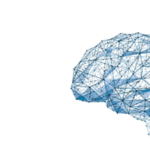Introduction
A recent survey by Leo Lo, president-elect of the Association of College and Research Libraries, revealed that nearly three-quarters of university librarians urgently need to address ethical and privacy concerns surrounding artificial intelligence (AI). The study, which included 605 respondents from various institutions, shed light on the librarians’ perspectives and challenges in grappling with AI concepts and principles.
Key Findings
AI Literacy Levels
Roughly half of the surveyed librarians claimed to have a “moderate” understanding of AI concepts, while only 3 percent considered their understanding to be “very high.” These claims highlight the need for increased awareness and education in AI among library professionals.
Ethics Training Urgency
A significant revelation from the survey was the consensus among 75 percent of respondents who expressed the urgent need to address AI’s ethical and privacy issues. Concerns included potential privacy violations and data misuse, such as the generation of false citations.
Librarians Taking Action
Many librarians actively address AI concerns by creating AI guides and launching pilot projects to alleviate anxieties among faculty members. This proactive approach reflects the librarians’ commitment to staying ahead of technological challenges.
AI Tools Usage
While chatbots and text- or data-mining tools were widely used among librarians, about two in five respondents admitted to never using a generative AI tool. Troubleshooting AI tools and applications emerged as a significant concern, with nearly 70 percent expressing “low confidence” in this area.
Role-Based Understanding
The survey revealed that librarians involved in administration, management, library instruction, and information literacy demonstrated a higher understanding of AI. This insight suggests a potential correlation between specific roles and a deeper comprehension of AI applications.
Recommendations
Based on the findings, Leo Lo suggests that librarians focus on seven AI competencies to navigate the evolving landscape effectively:
- Understanding AI systems’ capabilities and limitations
- Identifying and evaluating AI use cases
- Utilizing AI tools effectively and appropriately
- Critically assessing AI’s quality, biases, and ethics
- Engaging in informed AI discussions and collaborations
- Recognizing data privacy and security issues
- Anticipating AI’s impacts on library stakeholders
Conclusion
As AI advances and integrates into academic libraries, the need for ongoing research and education becomes apparent. Librarians play a crucial role in navigating the ethical challenges posed by AI, ensuring that these technologies are employed responsibly and ethically in the academic community.






